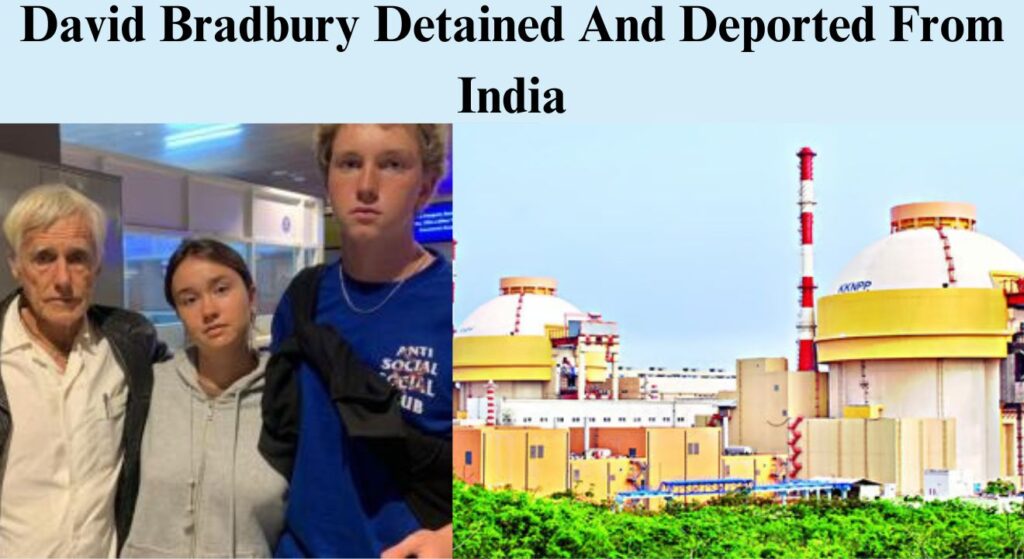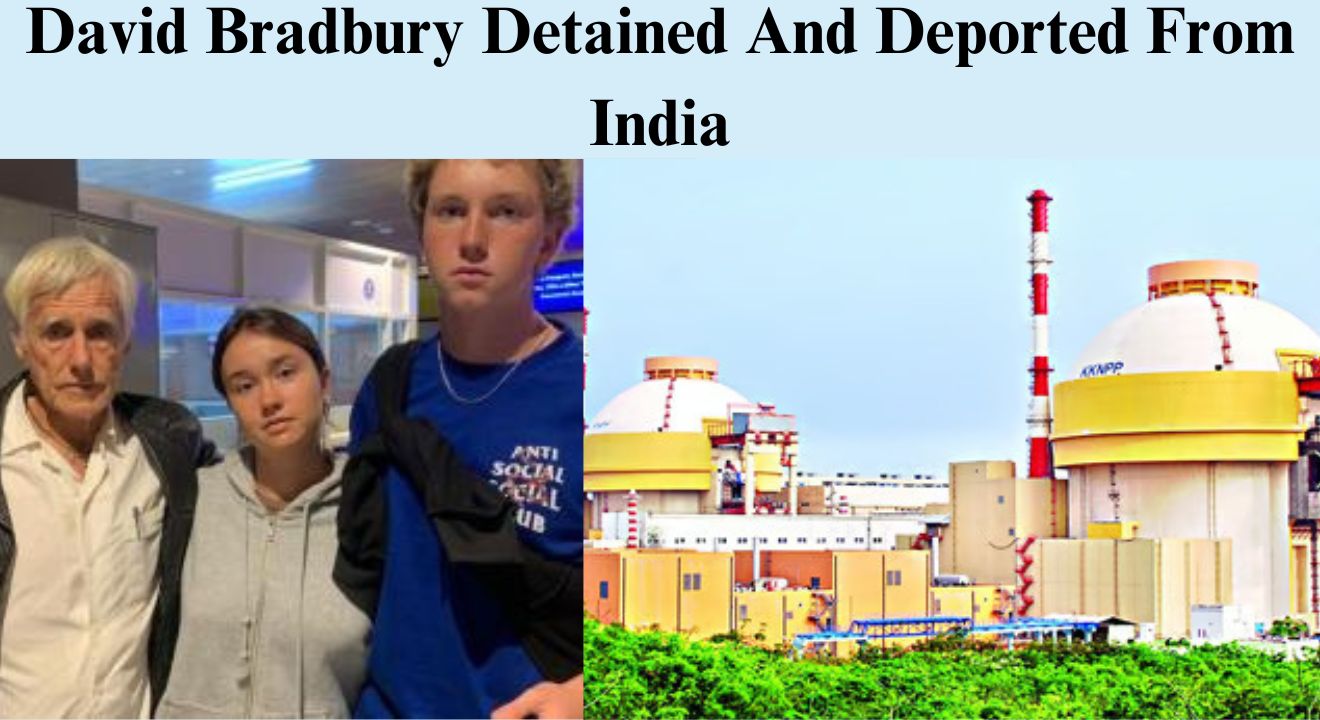When Australian documentarian David Bradbury arrived in India with his kids, Omar (14), and Nakeita (21), he was held at the Chennai Airport. The 73-year-old director, who has been nominated for two Oscars, had scheduled a two-week vacation to India after his wife Treena Lenthall passed away five months prior.

When the family arrived, David Bradbury was halted by immigration officials and held for a whole day before being sent back to Thailand. While his children were permitted to carry on traveling through India, David Bradbury was compelled to depart the nation without being given a reason for his arrest. He was deprived of his medicine and the use of restrooms while being detained in a cramped, filthy chamber.
Why The David Bradbury Detained And Deported From India?
David Bradbury feels that his past work in India had something to do with his incarceration. He had gone to the Tamil Nadu seaside village of Idinthakarai in 2012 to record demonstrations against the Kudankulam Nuclear Power Plant. The local fishing community was deeply concerned about the facility, particularly in light of the 2011 Fukushima event in Japan, and the potential long-term effects of a nuclear accident.
David Bradbury is an Australian documentary filmmaker who has always opposed nuclear power because of the damage it causes to the environment. When the construction of the Kudankulam nuclear power plant started in India, he also supported anti-nuclear movements. David Bradbury was not directly connected with the protests against the Kudankulam Nuclear Power Plant, but his opposition to nuclear issues brought him into contact with anti-nuclear activists in India.
David Bradbury on Kudankulam Nuclear Power Plant’s Protest
David Bradbury has made many documentary films on nuclear power and the dangers caused by it. He is famous for making documentaries on nuclear energy. His films reveal the ill effects of nuclear energy on social life. The objective of the protest that was going on at Kudankulam was also linked to the same concerns – like the safety of the plant, the damage caused to the environment and the risks to public health.
David Bradbury was planning to come to India to support the protest taking place in Kudankulam and to make a documentary on it. His association with the movement could have drawn international attention towards the protest, which could have led to the protest growing further, so he was barred from coming to India.
Why could David Bradbury not get entry into India?
David Bradbury was barred from entering India in 2012 because the Indian government considered his possible role in the Kudankulam protests to be an obstacle. There were several reasons for this:
1. Supporting Anti – Nuclear Protests:
David Bradbury’s speaking out against nuclear energy, making a documentary film on it and supporting the Kudankulam protest became a big challenge for the government. The government was concerned that a big personality like David Bradbury could delay or create problems in the making of the plan by giving more global visibility to the protest.
2. Visa Denial:
David Bradbury was denied a visa to enter India because of his anti-nuclear activism. The government feared that Bradbury would participate in the protests or document them, which could create further problems for India’s nuclear energy policy.
3. Fear of Foreign Interference
Some international people and NGOs were accused of encouraging the protesters during the Kudankulam disturbances, and the Indian government expressed alarm over foreign involvement. Actually, the government also prosecuted a number of foreign-funded non-governmental organizations (NGOs) for allegedly aiding the anti-KNPP campaign. As a well-known international filmmaker and activist, Bradbury would have seen this as an example of “foreign interference”.
David Bradbury’s anti-nuclear stance and backing of the protests led to his association with the Kudankulam Nuclear Power Plant. Because of his potential to intensify the protests and because the Indian authorities did not want the movement to garner greater international notice, they refused to let him access.
